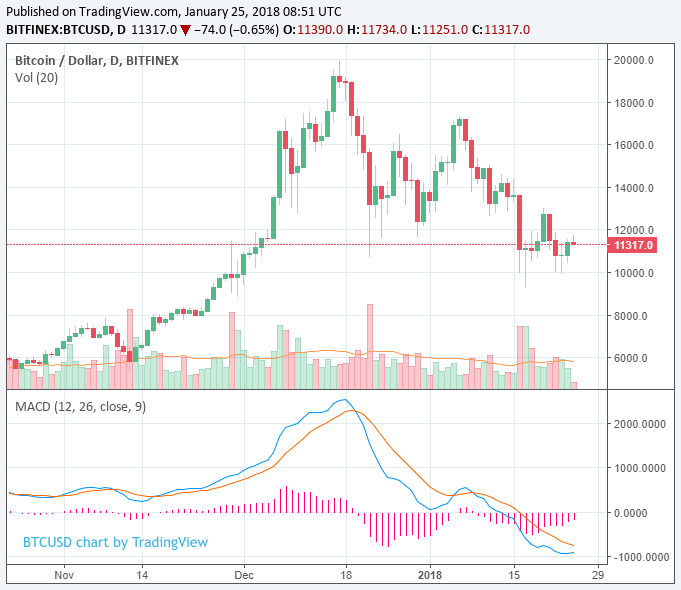Major Cryptocurrencies Recover as Bitcoin, Ethereum, and Cardano Surge in Value

With the exception of Ripple, which has demonstrated a poor performance throughout the past few weeks, major cryptocurrencies in the market including bitcoin, Ethereum, and Cardano have increased in value.
Within the past 24 hours, the price of bitcoin increased by 8 percent, Ether surged by 10 percent, and Cardano rose by 15 percent. While the price of the three cryptocurrencies have declined by a small margin in the past three hours, they have still recorded relatively large daily gains.
Bitcoin’s Popularity
During a major correction that occurred in early January, when the price of most cryptocurrencies plunged by more than 50 percent from their all-time highs, the popularity of bitcoin surged as investors moved to cryptocurrencies with lower volatility rates.
At the time, the dominance index of bitcoin rose to 38 percent, recovering from its all-time low at 32 percent. Over the past week, the dominance index of bitcoin has fallen from 38 percent to 34 percent, and the daily transaction volume of bitcoin has more than halved, from 490,000 transactions to 242,000 transactions.
The decline in the daily transaction volume of bitcoin has cleared the mempool and led to a significant reduction in fees. Widely utilized bitcoin wallets such as Blockchain have been recommending a fee of about 50 satoshis per byte, or $0.5, for median-size transactions. Lower fees increase the accessibility of bitcoin for newcomers and casual users, especially to users that utilize bitcoin for small payments.
Evidently, the recent decline in the transaction fee of bitcoin was triggered by the drop in the daily trading volume, not due to a specific scaling solution, given that major bitcoin companies are yet to adopt Segregated Witness (SegWit) and implement transaction batching technologies.
As such, when the price of bitcoin increases again and its daily trading volume rises, fees will inevitably go up again. The high fees of bitcoin prevent newcomers and casual users from seamlessly transacting and settling payments.
High fees will likely have an impact on the price of bitcoin in the short-term, if the market recovers again. Innovative scaling solutions and swift implementation of SegWit by bitcoin firms are urgently needed to ensure bitcoin can recover to its previous highs.
Cardano
The demand for Cardano, better known as ADA in Japan and South Korea, is rising at a rapid rate in the Asian market. Many investors perceive Cardano as a competitor to Ethereum, as it also operates as a smart contracts protocol. The fundamental difference between Ethereum and Cardano is the utilization of proof-of-stake consensus algorithm by Cardano.
Because Cardano is traded frequently on South Korea’s UpBit and Japanese cryptocurrency exchanges, recovery by the two markets will likely lead to an increase in the value of Cardano. The South Korean market is still awaiting the January 30 new account registration resumption by South Korean cryptocurrency exchanges. As new users enter the market, the price of cryptocurrencies like Cardano, Qtum, and EOS with strong followers in Asia are expected to increase in value.
Major cryptocurrencies will likely recover ahead of other alternative cryptocurrencies in the market in the short-term. As Brian Kelly of BKCM and CNBC’s Fast Money noted, investment from institutional and retail traders are increasing at a rapid rate and it is unlikely that large-scale investors will target altcoins with small market valuations and less liquidity.
Featured image from Shutterstock.

